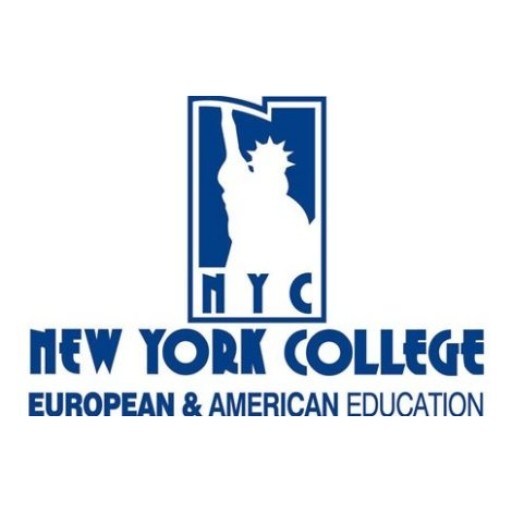Photos of university / #michiganstateu
The Bachelor of Arts or Bachelor of Science in Information and Media at Michigan State University offers students a comprehensive education designed to prepare them for a dynamic and rapidly evolving industry. This program combines rigorous coursework in information sciences, media production, communication, and technology, equipping graduates with the necessary skills to succeed in various media-related fields. Students will explore the principles of information management, digital media production, storytelling, and the ethical considerations surrounding media and information dissemination. The curriculum emphasizes both theoretical knowledge and practical skills, enabling students to analyze media content critically, develop innovative media projects, and adapt to emerging technologies. Throughout the program, students engage in hands-on experiences through internships, collaborative projects, and research opportunities, fostering a deep understanding of the media landscape. The program also emphasizes the importance of understanding cultural, societal, and ethical issues in media and information industries. Graduates of this program are well-prepared for careers in media production, digital communication, information management, content development, and related fields. They are equipped to work in a variety of settings, including media organizations, corporate communication departments, government agencies, and non-profit organizations. The program’s interdisciplinary approach ensures that students gain a broad perspective on how information and media influence society and individual behaviors. With access to state-of-the-art facilities and resources, students develop technical proficiency in multimedia software, data analysis, and emerging digital tools. Michigan State University’s strong industry connections and focus on experiential learning provide students with valuable opportunities to build professional networks and gain real-world experience. Graduates leave the program with the critical thinking skills, technical expertise, and ethical awareness necessary to thrive in a competitive media environment. Whether students aspire to become media producers, communication strategists, or information specialists, this program offers a solid foundation for a successful career in the information and media industries.
The student must meet the requirements specified below:
| 1. | Theory. Complete all of the following (9 credits): | ||||||
| a. | The following course (3 credits): | ||||||
| ADV | 900 | Theory Building in Media and Information Studies | 3 | ||||
| b. | Two of the following courses (6 credits): | ||||||
| ADV | 921 | Media Theory | 3 | ||||
| CAS | 992 | Doctoral Seminar | 3 | ||||
| MI | 960 | Media and Technology | 3 | ||||
| Only one enrollment in a 'theory' designated section of CAS 992 may count towards the Theory requirement. | |||||||
| 2. | Research Methods. Complete all of the following (15 credits): | ||||||
| a. | The following course (3 credits): | ||||||
| MI | 975 | Quantitative Research Design | 3 | ||||
| b. | One of the following courses (3 credits): | ||||||
| JRN | 916 | Qualitative Research Methods | 3 | ||||
| MI | 985 | Advanced Quantitative Analysis for Media | 3 | ||||
| c. | Complete 9 credits of electives in research methods as approved by the student's academic advisor. | ||||||
| 3. | Concentration. Complete six courses from an area of concentration selected in consultation with the student's guidance committee (18 credits). | ||||||
| 4. | Complete 24 credits of CAS 999 Doctoral Dissertation Research. | ||||||
| 5. | Prepare and successfully defend the doctoral dissertation. | ||||||
- The fee is $65 for domestic students, $75 for international students, and can be paid with credit card, check (US funds), or money order (see application for details).
- Three (3) letters of recommendation from persons familiar with your academic or professional work and are willing to assess your aptitude for graduate work. Once you have listed your recommenders and their email addresses the system will generate an email to your recommenders explaining the process to submit their letters electronically (NO HARDCOPIES accepted).
- An Academic Statement: A concise academic statement of your plans for doctoral study, your career goals, and how the Information and Media Ph.D. program will help you meet your career and educational objectives. Be sure to relate your plans and goals to the interests of the faculty you have contacted.
- A Personal Statement: A concise personal statement about how your background and life experiences, including social, economic, cultural, familial, education, or other opportunities or challenges, motivated your decision to pursue a doctoral degree.
- A Resume: Include all activities that account for your time since earning a bachelors degree (e.g. employment, military service, travel). Include the type of activity, name of employer, city/state, and dates. List the most recent activity first. Also include all relevant professional experiences, locations, dates and any scholarly conference presentations or publications.
- Indicate your area of interest: Advertising and Public Relations; Journalism; or Media and Information.
- One original paper copy of official transcripts and degree certification documents for all college work should be sent directly from the institution to Nancy Ashley
- For International Applicants ONLY: The Test of English as a Foreign Language (TOEFL) is required. For the paper version, a minimum score of 580 with no subscore below 55 is required. For the Internet based test a total score of 93 with no subscore below 21 is required. When submitting scores use the university code 1465. Waivers are permitted only for those who have completed a four-year college degree in the United States, at an institution with English as the language of instruction, or an MA degree at an AAU Tier I institution.
Scholarships
Graduate teaching and research assistantships with generous monthly stipends, tuition remission, and health benefits are available and over 90 percent of our current students are supported. University fellowships, dissertation completion fellowships, summer research fellowships, and stipends for travel to academic conferences round out the resources available for students
The Bachelor of Arts in Media and Information Studies at Michigan State University offers students a comprehensive education in the evolving fields of media, communication, and information technologies. This program is designed to prepare students for a wide range of careers in media industries, digital communication, information management, and related fields. The curriculum combines theoretical foundations with practical skills, enabling students to analyze media content critically, understand the socio-cultural impacts of media, and develop expertise in media production, digital storytelling, and information systems.
Students enrolled in this program have the opportunity to explore various aspects of media, including journalism, advertising, public relations, digital media production, and data management. The coursework emphasizes critical thinking, ethical considerations, and innovation in media practices. Faculty members are engaged in cutting-edge research, which informs the curriculum and provides students with insights into the latest trends and technologies in media and information industries.
The program also encourages experiential learning through internships, project-based assignments, and collaborations with industry partners. This practical experience helps students build professional networks, develop portfolio work, and gain real-world skills that enhance employability upon graduation. Additionally, the program provides avenues for specialization, allowing students to tailor their studies toward areas such as media production, media management, or information analysis, depending on their interests and career goals.
Michigan State University is known for its strong emphasis on research and innovation in communication and media studies. The university’s resources include state-of-the-art media labs, research centers, and a vibrant campus life that fosters diverse perspectives and collaborative learning. Graduates of the Media and Information Studies program are well-equipped to pursue careers in media organizations, digital content creation, nonprofit communication, corporate communication departments, and beyond. They may also continue their education in graduate programs related to communication, media studies, or information science.
Overall, the program aims to prepare students for the dynamic and interdisciplinary nature of media and information fields, emphasizing ethical practices, technological competence, and societal impact. By combining academic rigor with practical application, Michigan State University’s Media and Information Studies program seeks to develop competent professionals who can adapt to rapid technological changes and contribute thoughtfully to media and information industries.








